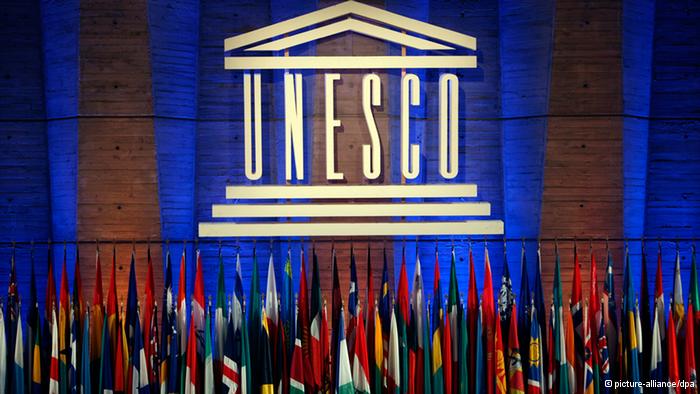Audrey Azoulay, Director-General of UNESCO presented Thursday the first-ever global standard on the ethics of artificial intelligence adopted by the member states of UNESCO at the General Conference.
This historical text defines the common values and principles that will guide the construction of the necessary legal infrastructure to ensure the healthy development of AI.
AI is pervasive and enables many of our daily routines – booking flights, steering driverless cars, and personalizing our morning news feeds. AI also supports the decision-making of governments and the private sector.
AI technologies are delivering remarkable results in highly specialized fields such as cancer screening and building inclusive environments for people with disabilities. They also help combat global problems like climate change and world hunger and help reduce poverty by optimizing economic aid.
But the technology is also bringing unprecedented new challenges. We see increased gender and ethnic bias, significant threats to privacy, dignity, and agency, dangers of mass surveillance, and increased use of unreliable AI technologies in law enforcement, to name a few. Until now, there were no universal standards to provide an answer to these issues.
In 2018, Audrey Azoulay, Director-General of UNESCO, launched an ambitious project: to give the world an ethical framework for the use of artificial intelligence. Three years later, thanks to the mobilization of hundreds of experts from around the world and intense international negotiations, the 193 UNESCO’s member states have just officially adopted this ethical framework.
The world needs rules for artificial intelligence to benefit humanity. The Recommendation on the ethics of AI is a major answer. It sets the first global normative framework while giving States the responsibility to apply it at their level. UNESCO will support its 193 Member States in its implementation and ask them to report regularly on their progress and practices.
Audrey Azoulay, UNESCO Director-General
The content of the recommendation
The Recommendation aims to realize the advantages AI brings to society and reduce the risks it entails. It ensures that digital transformations promote human rights and contribute to the achievement of the Sustainable Development Goals, addressing issues around transparency, accountability and privacy, with action-oriented policy chapters on data governance, education, culture, labour, healthcare and the economy.
Protecting data
The Recommendation calls for action beyond what tech firms and governments are doing to guarantee individuals more protection by ensuring transparency, agency and control over their data. It states that individuals should all be able to access or even erase records of their personal data. It also includes actions to improve data protection and an individual’s knowledge of, and right to control, their data. It also increases the ability of regulatory bodies around the world to enforce this.
Banning social scoring and mass surveillance
The Recommendation explicitly bans the use of AI systems for social scoring and mass surveillance. These types of technologies are very invasive, they infringe on human rights and fundamental freedoms, and they are used broadly. The Recommendation stresses that when developing regulatory frameworks, Member States should consider that ultimate responsibility and accountability must always lie with humans and that AI technologies should not be given legal personality themselves.
Helping to monitor and evaluate.
The Recommendation also sets the ground for tools that will assist in its implementation. Ethical Impact Assessment is intended to help countries and companies developing and deploying AI systems to assess the impact of those systems on individuals, on society, and the environment. Readiness Assessment Methodology helps Member States to assess how ready they are in terms of legal and technical infrastructure. This tool will assist in enhancing the institutional capacity of countries and recommend appropriate measures to be taken to ensure that ethics are implemented in practice. In addition, the Recommendation encourages Member States to consider adding the role of an independent AI Ethics Officer or some other mechanism to oversee auditing and continuous monitoring efforts.
Protecting the environment
The Recommendation emphasizes that AI actors should favor data, energy, and resource-efficient AI methods that will help ensure that AI becomes a more prominent tool in the fight against climate change and in tackling environmental issues. The Recommendation asks governments to assess the direct and indirect environmental impact throughout the AI system life cycle. This includes its carbon footprint, energy consumption, and the environmental impact of raw material extraction for supporting the manufacturing of AI technologies. It also aims at reducing the environmental impact of AI systems and data infrastructures. It incentivizes governments to invest in green tech, and if there are disproportionate negative impact of AI systems on the environment, the Recommendation instructs that they should not be used.
Decisions impacting millions of people should be fair, transparent, and contestable. These new technologies must help us address the major challenges in our world today, such as increased inequalities and the environmental crisis, and not deepen them.
Gabriela Ramos, UNESCO’s Assistant Director-General for Social and Human Sciences
Emerging technologies such as AI have proven their immense capacity to deliver for good. However, its negative impacts which are exacerbating an already divided and unequal world, should be controlled. AI developments should abide by the rule of law, avoiding harm, and ensuring that when harm happens, accountability and redressal mechanisms are at hand for those affected. (https://www.unesco.org/en/articles/unesco-member-states-adopt-first-ever-global-agreement-ethics-artificial-intelligence)



































